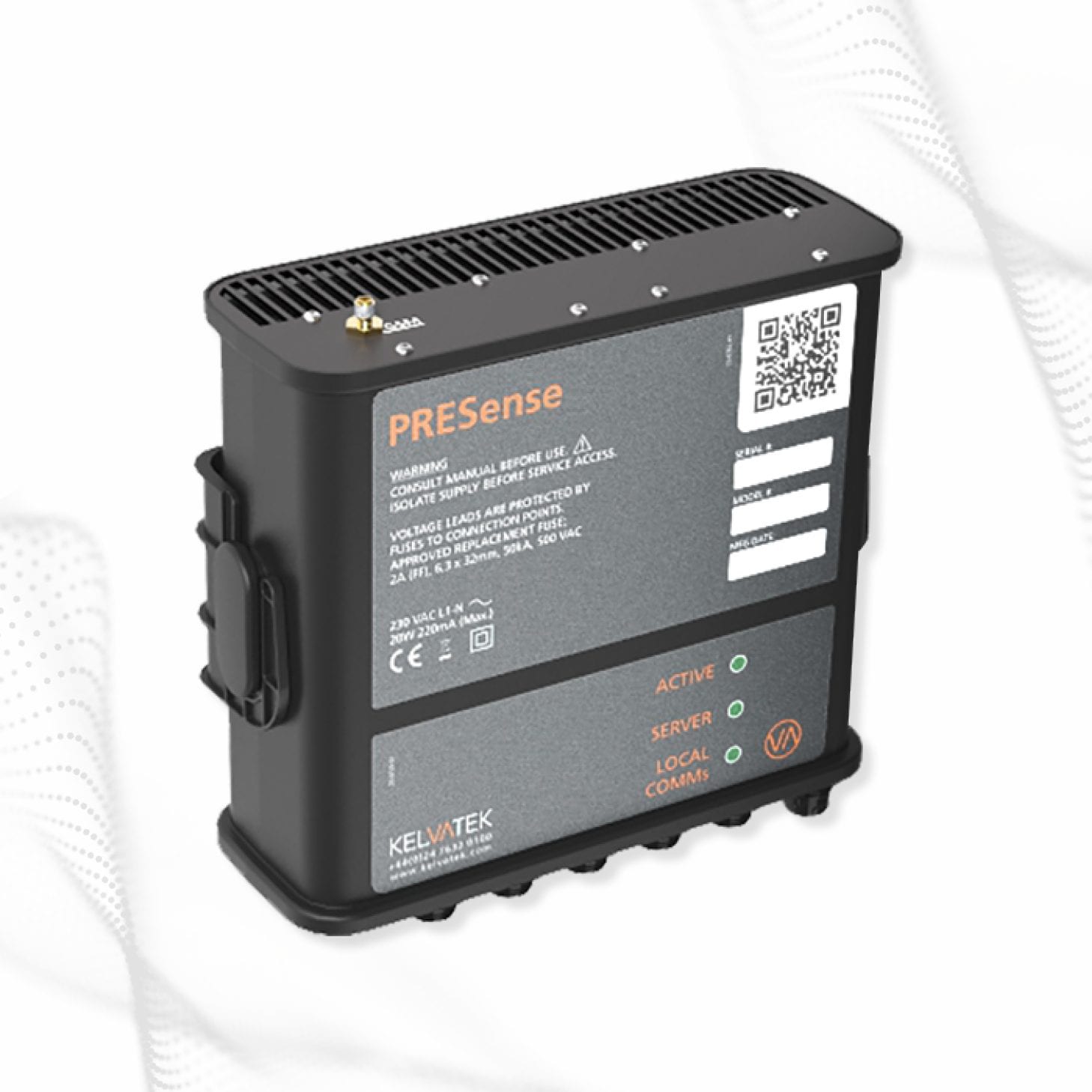This is the Sponsored paywall logged out
In our latest Tech Talk, Kelvatek discusses PRESense, its next generation monitoring solution. It leverages edge computing and data analytics to help network operators understand and manage the condition of their assets with greater certainty – and lower costs – on the road to net zero.
The drive to net zero is proving an interesting journey for DNOs.
National Grid forecasts that EV numbers could range between three and 10 million by 2030, potentially hitting 36 million by 2040, and these projections were made before the official announcement of the ban of new sales of ICE vehicles from 2030.
As UK consumers become more reliant on the continuity of their electricity supply, the expense and inconvenience of every LV fault represents a growing burden on network operators.
 To minimise these costs and unlock valuable incentive mechanisms, operators need commercially viable methods to help them highlight and manage developing issues on cables, transformers and other assets before service levels and customer satisfaction are impacted.
To minimise these costs and unlock valuable incentive mechanisms, operators need commercially viable methods to help them highlight and manage developing issues on cables, transformers and other assets before service levels and customer satisfaction are impacted.
Armed with sufficient information about load profiles, cable condition and real-time power flows, operators can have a better chance of understanding the conditions of their LV network before an intermittent fault goes permanent. Specifically, they can make better-informed decisions when assets need to be replaced, or what other less costly interventions could be made.
The latest example of Kelvatek’s commitment to helping DNOs understand and manage their assets more effectively and cost-efficiently is PRESense — our new, AI-enabled LV network monitoring solution. Powerful machine learning algorithms allow PRESense to identify subtle patterns and trends in network behaviour and power flows, helping build a detailed picture of likely fault activity, asset and network health.
In essence, PRESense is an edge computing device that’s installed at sub-stations and other supply points on the network. PRESense captures and analyses highly granular information on power flows, helping to spot a range of developing load issues. These include potential overload caused by increasing numbers of electric vehicles, problems caused by distributed generation (e.g. reverse power flows) and limited network capacity.
As well as voltage and current data, PRESense monitors and calculates a wide range of parameters that contribute to a comprehensive picture of network health.
PRESense feeds this data to advanced analytics platforms and aggregates it with meteorological and local geological data. This information is then weighted and processed to create a health index for each cable. In turn, this allows operators to instantly classify the status of each feeder.
Is it fault-free? Is there likely to be a one-off intermittent fault any time soon? Are there likely to be repeat faults that would benefit from fitting a recloser to the circuit? Or is there a continuing pattern of intermittent activity that’s indicative of a fault likely to go permanent?
PRESense intelligently adjusts the volume and frequency of data that is logged dependent on network conditions and the task at hand. This approach can be used to minimise data transport and storage costs, with the ability to filter the relevant information from the edge of the network back to the processing centre. Shifting the burden away from the necessity of processing and managing huge amounts of data, this reduces operational monitoring costs while accelerating the process of turning raw data into actionable insights.
The data collected by PRESense translates directly into actionable information, confirming whether the network’s operating safely and reliably or whether an action is required in short, medium or long-term. This, in turn, enables network operators to plan and undertake the most effective form of remedial action – whether it is network modification, deployment of flexibility products, replacement of cables and transformers or other traditional reinforcement methods.
Early in the development of PRESense we realised that its capabilities had to harmonise with DNO’s regulatory obligations and be interoperable with a variety of system architectures to ensure flexibility. Rather than building PRESense as a closed, proprietary environment, we’ve ensured that the raw power quality data it collects is openly available to our customers in a cyber secure and readily managed way. This allows network operators to harness the information and insights that PRESense yields as valuable tools to guide their own operational and commercial plans.
DNOs have long been aware of the benefits of LV monitoring. But until now it’s been seen as a costly ‘nice to have’, rather than as an essential element of network operations. With a PRESense targeted monitoring strategy that combines the benefits of cable health and network health we’ve made the business case for LV monitoring compelling, helping operators to improve the standard of service for end customers, while allowing them to run their busines efficiently and achieve their net zero goals.
For more information on PRESense, please click here.

Please login or Register to leave a comment.